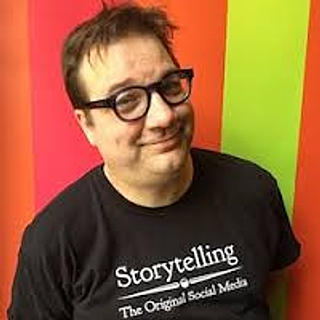Becoming A Story-ographer
- Kevin Cordi
- Sep 7, 2021
- 3 min read
Sometimes the lens is life. See it. Find it. Tell the Story.
Becoming a Story-ographer
By Kevin D. Cordi, Ph.D.

It is not being a Journalist
There is a stark difference between acting as a journalist and becoming a story-ographer. (Cordi, 2011.) Let us first look at what it means to “act as a journalist.” A journalist is called upon to behave in a way where the product will usually result in receiving timely news. This requires the journalist to ask the questions that matter for this expressed purpose. Deviation from this is not encouraged, instead staying on topic allows the journalist to write the lead and develop the story from there. There is a richness to timely delivery of the news. The journalist is responsible for making this happen.

Story-ographer
However, the story-ographer does not act in a position of capturing the news in a timely matter, instead the story-ographer works on slowing down an experience so stories arise from a conversation. A story-ographer practices story-ography.
Story-ography is the art of mining the stories with another. (Cordi, 2009). This is a rich practice of deep listening in order to discover and share the stories of another person. A story-ographer may not be concerned with chronological time, but instead times of significance.
Times of significance are pivotal moments in a person’s story making or story awareness. Instead of asking one question and the person being asked answers, the format for the story-graphy is to have a conversation. Both people can ask questions in service of the story. Distractions can lead to better story development. A story-ographer listens deeply for the missing parts of a story. They may be finding something needed for further development. The story-ographer can help build the story from the conversations that are occurring. The story is often organic in nature. It is not uncommon that it is a story that continues to develop with more conversation, research, and awareness. It does not have to be printed in the press, but it needs to be expressed in the spoken tradition. Through the process of “storying” (Wells, 2004), the story is developed. Storying is to discover through deep listening and working to find rich narratives in a conversation.

Tips to Developing as a Story-Ographer
One of my students Casey said this about being a story-ographer, “When one is a story-ographer he or she can listen and feel within their heart that person’s story.” When she later assembled her collection of stories, she found new recognition. “In the process of putting each person’s interview into the final presentation it really hit me, I was making a storybook. I wasn’t just putting together a project for one of my classes; I was retelling these person’s stories.”
Another student Trent offered two tips for anyone starting as a story-ograher.
Do more listening than talking.
Bring plenty of batteries to the interviews.
I would add:
Don’t be in a hurry, it takes a while for stories to surface, wait for them.
Be open to all accounts. Your job is to capture a narrative, not judge one.
Pictures or “characteristic language” (Collins, 2009) helps build story memory.
Think in story. Don’t try to remember word for word but instead think in story, ask yourself, how do I see what they told me as a story? Then, retell it as though it is happening right now.
R

Remember, you are providing a tapestry of someone else’s narrative. Honor it. Share it. Most important, tell it.
*Note: Receive permission when it is needed to share someone else’s story.
Think about the stories that you are missing and take the time to seek them out. You can find stories by seek out people who you only know as distant neighbors, talking with the town barber, or visiting a museum and speaking to someone why the place is significant. You can find rich stories when your agenda is not a priority, instead taking the time to listen and discover the stories that are invisible, unspoken, or rarely heard.
This time is important, the story waits for you.
If you have a story that you want to share or tips on collecting stories, let us know. Kevin Cordi studied as a journalist for a brief time until he discovered the value of story-ography. He teaches this practice as long as what happens when you play with a story idea for a business, or for yourself and more. Let him know if he can help you as you work with story.






Comments